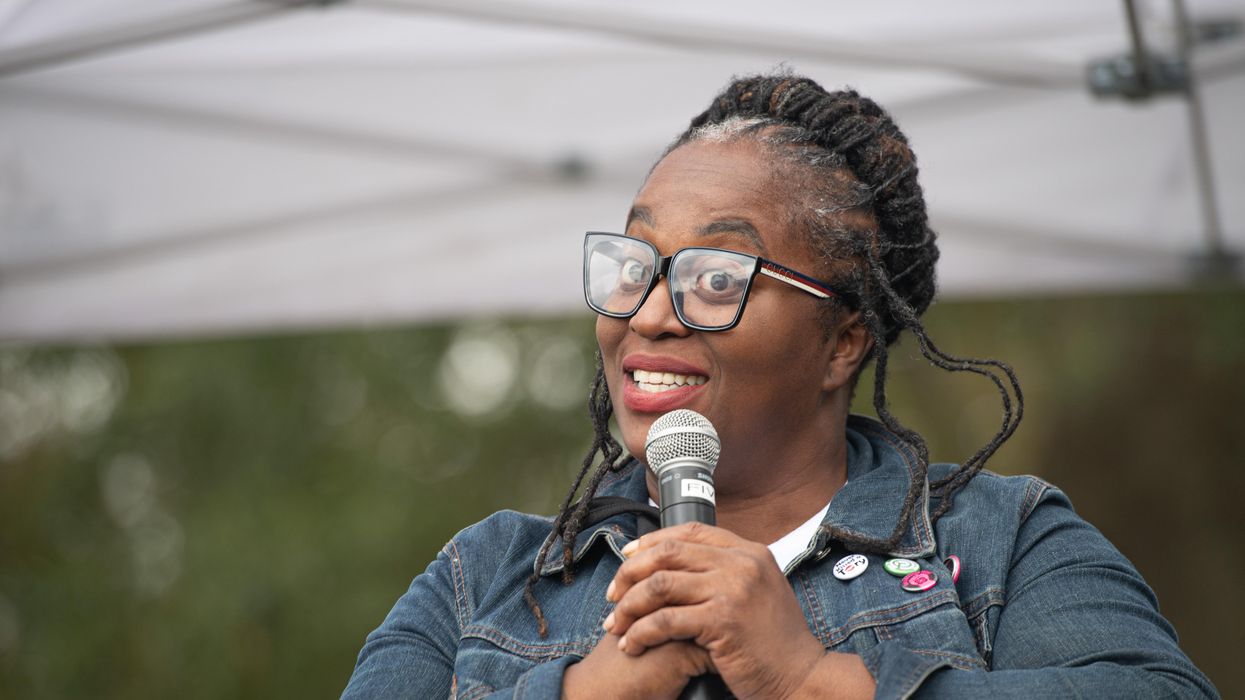This is the seventh installment of an ongoing Q&A series.
As Democrats take power in Washington, if only tenuously, many democracy reform groups see a potential path toward making the American political system work better. In this installment, Nsé Ufot — CEO of the New Georgia Project and its political arm New Georgia Project Action Fund — answers our questions about 2020 accomplishments and plans for the year ahead. Her organization was at the heart of the Peach State's get-out-the-vote efforts for the November general election and January runoffs. Ufot's responses have been edited for clarity and length.
First, let's briefly recap 2020. What was your biggest triumph last year?
In 2020, we successfully organized for a huge increase in voter turnout in the June primaries, the November general, the January runoffs and the youth vote. More than 33,000 Georgians under 35 who didn't vote at all in the general election held in November voted early in the runoff election held in January. This includes more than 14,000 Black Georgians under 35. We completely changed the status quo of people not coming out to vote again and voting for the first time in a runoff election.
But what I consider our biggest triumph is the more than 13,000 volunteer shifts we were able to staff throughout the course of the year — underscoring the notion that we are the ones we have been waiting for, that we are the ones who will be tasked with building the new Georgia. Each and every one of us.
And your biggest setback?
At NGP we don't see anything as a setback, we see problems that need solutions. We had state and federal leadership that had essentially abandoned Georgians during the pandemic, and Georgia's Covid-19 contraction and mortality rates were highest in the communities we had prioritized for our 2020 outreach efforts. Because of the uncontrolled spread, we spent Q2 and Q3 organizing virtually. There was a belief that it was not safe to have the high-quality, face-to-face conversations, one of the cornerstones of our organizing. Our solution was to engage voters through our very successful Twitch the Vote livestreams, to ramp up our phone, text and virtual efforts that prioritized connecting Georgians in need with direct services, conducting wellness checks, distributing hundreds of thousands of PPE and eventually returning to in-person canvassing after closely following CDC guidelines.
What is one learning experience you took from 2020?
That if you stay ready, you don't have to get ready. Because of the infrastructure that we have built and the ongoing training of our staff and volunteers, when it was clear that Georgians would have three January runoff elections, our volunteer, field, data/technology, communications and fundraising apparatuses were ready to meet the moment. In nine weeks we performed more than 1,690,600 door knocks, more than 4,743,400 phone calls and more than 3,525,500 texts.
Now let's look ahead. What issues will your organization prioritize in 2021?
Health care. A $15 minimum wage. Restoring and improving on the Voting Rights Act via bills like HR 1 and HR 4. Climate and energy justice. Criminal legal reform. And dramatically increasing young and BIPOC voters' participation in the 1,500 municipal elections that Georgians will be voting in this year.
How will Democratic control of the federal government change the ways you work toward your goals?
I hope it makes it easier to hold our federal leaders accountable to a legislative agenda that centers on working families and the most vulnerable members of our communities. Currently we do not see it changing the ways we work toward our goal because we have individuals in office who share our progressive values, not just those in Georgia. There is an expectation that we will fight to deliver on the campaign promises that were made.
What do you think will be your biggest challenge moving forward? And how do you plan to tackle it?
Whitelash — violent, aggressive attacks on our democracy and our elections infrastructure in response to America's multiracial, multiethnic majority participating more in our elections and in public life. And the elected officials, media elites, captains of industry and folks who would have us bury our heads in the sand and ignore these threats to our democracy, in pursuit of a political and a policy agenda that prioritizes collegiality and unity for its own sake and not as a part of an effort to win meaningful changes for working families. The pressure from leaders to make common cause with those who deny our humanity, at the expense of real policy changes, will be great. And we plan to tackle it by reminding ourselves, our elected leaders and the public that our economy, our schools, our health care systems, our environment, our democracy, etc. are in desperate need of attention now. Getting voters and community members to focus on the opportunity that we have, right now, to win something substantial on these issues and more is how we plan to tackle it. By harnessing our power and focusing our attention on what we WANT, what we NEED for our families; not just what we abhor.
Finish this sentence. In two years, American democracy will…
be tested again, and will prove to be stronger and more resilient than it is today.





















